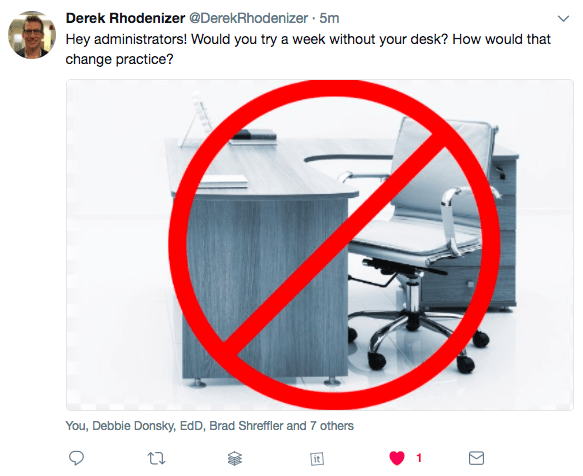Yesterday I happened to pick up on a story on the CBC’s The Sunday Edition. Just like the Globe and Mail and other media sources, the issue of increasing violence in the classroom was being highlighted. I retweeted the story and we listened to the episode.
It is an important story. It is a frustrating one as well because no one in positions of real authority seems to be listening. What might surprise people is the fact that the problem of violence is most pronounced in elementary schools. On top of that, these incidents of violence go largely unreported.

These were the results of an online survey conducted for the Elementary Teachers’ Federation of Ontario in relation to the 2016-17 school year. (Ben Shannon/CBC)
The article attached to the Sunday Edition episode includes an upsetting statistic:
Results from ETFO’s members showed only 22 per cent of teachers said they would report cases of verbal or physical violence, and less than a quarter said steps were taken to prevent future incidents.
The report continued by stating that many teachers felt that no change would take place so why bother reporting?
As a former elementary administrator, I understand their reluctance to report. People at the most senior levels of school boards are not comfortable with this kind of information and they have no answers for teachers who have to deal with violence in the classroom.
I am not making this up. Schools are generally on their own when it comes to violent incidents, especially at the elementary level. To complain does not do any good; you are reminded to rely on the resources you already have. These resources continue to be cut back all the time. High schools have more specialized programming and more support staff. Elementary schools have the principal, a resource teacher, and the all-important educational assistant staff. That’s all.
One comment on my retweet struck me.
While I respect what Lisa was saying here, her comment misses the point. I am sure the teachers talking on Sunday Morning are good teachers trying very hard to do their best. Learning about self-regulation would not change what is going on in their classrooms.
I do think self-regulation is useful. It is always useful to learn about what motivates people and it is very healthy to acquire a deeper sense of self-knowledge. Most ancient religions are based on ideas of developing a deep sense of self.
There is a danger with a reliance on any one system of belief and the danger here is that we are really pushing the idea that the violence in schools could somehow be solved if teachers were just a bit better trained. The problem with this approach is this – the system will never be improved by political pressure or social advocacy, therefore, change must be on the backs of educators. Nothing else will change so we need to be the change.
This is why, I think, self-regulation is so popular amongst senior administrators and some consultants. We are taking an ancient idea and asking educators to become agents of personal transformation. If educators are the only agents of change there is little need to call for the resources we truly need to make our system more effective, more humane and more peaceful.
Social change is hard to do and hard to understand. It is easier to give up on change and get teachers to take up the mantle.
That is why I am uncomfortable about waving the flag of self-regulation in front of the angry school.
I know there will be blowback against what I am writing but I want to be clear. I am an advocate for educators. I have seen the struggle they go through every day and I have dealt with my fair share of very violent incidents in elementary schools, some so dangerous that parts of our building had to be cleared to keep students and educators safe.
I also understand self-regulation. I have listened to and read really good material on self-regulation and acquiring self-knowledge and have undergone my own very painful journeys to understand myself and those around me. Yes, self-regulation is important for everyone – no it will not solve the problems experienced by educators in our schools today.
My point is simple – don’t put school reform on the backs of the educator. Self-regulation is simply not a panacea, it is one tool to help educators better understand themselves and their students. We are relying on this movement too much and it is crowding out the necessary conversation we need to be having on how schools can better serve students, parents and educators.
Let’s focus on a system that needs to be changed, let’s broaden the conversation.



















